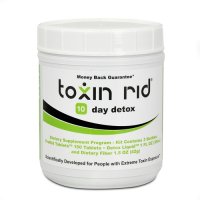How Long Does Weed Stay in Your Blood System?
That can be a very important question if you are a user of weed products or products derived from the Cannabis Sativa plant. Marijuana, of course, is the Cannabis derivative with the highest content of THC or Tetrahydrocannabinol which is the psychoactive component of the pot. Medical marijuana is now legal in 33 states and recreational marijuana is legal in 11 states BUT you can still get in a lot of trouble if you test positive for a hash. So the answer to the question of how long weed stays in your body can mean getting or keeping a job, being able to drive a car or truck, getting into or staying in the military or passing a probation monitoring successfully. To do these things you will need to pass a drug test not only for cannabis products but for other drugs as well.
How is the blood test for marijuana performed?
The blood test for marijuana is used for the detection of THC the psychoactive part of weed as well as for the major active metabolite which is THC-OH and also for the major inactive metabolite of THC which is THC-COOH. The test is a gas chromatography-mass spectroscopy (GC/MS) test which is very specifically and accurately able to identify and quantify the levels of THC and its metabolites that remain in blood samples.
How long does THC stay in your bloodstream?
In order to answer the question of how long marijuana stays in your blood, we need to spend a little time learning about how THC is metabolized once it gets into your system. Typically, the leaves or buds of marijuana are smoked as a so-called joint but there are also now many edible forms of marijuana like cookies, brownies or gummies and there are also THC infused teas and other drinks. Regardless of how it gets into your body, THC reaches the liver where it is detoxified to two major compounds the active THC-OH and the inactive THC-COOH. THC itself begins to appear in your blood system within seconds of its being smoked and reaches a peak in 3-8 minutes and THC-COOH begins appearing in your bloodstream about ten minutes after marijuana is smoked. THC itself can be detected in the blood system for a maximum of about five hours after a single joint. THC-COOH, however, can be detected in occasional users for 20-57 hours and in regular users from 3-13 days. THC-COOH leaves the body by way of urine and feces.
In a 2009 study, researchers monitored cannabinoid concentrations in the blood of 25 frequent cannabis users. During seven days of abstinence from cannabis use, nine subjects, or 36%, had no measurable THC in their blood samples, while the other 16 still had at least one positive THC test over the same timeframe. After the weeklong period ended, five of the subjects all females still had detectable THC concentrations in their bloodstreams and all subjects had measurable levels of the metabolite THC-COOH in their bloodstreams.
Another study showed measurable THC in the blood of heavy marijuana users after seven days of supervised abstinence.
A 2017 study followed the blood and oral fluid levels of THC following ingestion of THC-laced brownies to see how long weed stays in your bloodstream. Blood levels of THC increased rapidly and by 48 hours 33% of heavy regular users of marijuana remained positive but none of the occasional users tested positive for THC in their bloodstreams. Another study emphasized the variability in blood levels of THC and its metabolites among light, moderate and heavy users but an as expected general trend toward higher levels and longer detection windows in heavy users.
Table 1 Blood levels of THC and THC-COOH after marijuana use
| Marijuana use | THC | THC-COOH | |
| 1) Occasional | 5 hours | 24 hours | Less than once/week |
| 2) Moderate | 20-57 hours | 7 days | 1-3X/week |
| 3) Frequent | 3-5 days | 7-10 days | Daily |
| 4) Heavy | 2-7 days | 30-90 days | 7+ joints/day |
Note: These are estimates based on a combination of several studies. There is considerable variation and overlap in the time that THC or THC-COOH can be measured in the bloodstream after using marijuana.
A crucial aspect of the question of how long marijuana lasts in blood is the relationship between blood levels and behavioral effects. A study in monkeys showed that there was no correlation between blood levels which did not provide a consistent index of behavioral impairment across individuals with different patterns of THC exposure. Consequently, blood levels of THC or its metabolites which are most often used following road accidents, following suspected driving while intoxicated or following arrest for suspected criminal activity may not be accurate predictors of behavioral impairment and should be interpreted with caution. A 2014 study suggested that a combination of blood THC-COOH and blood THC-COOH-glucuronide might provide a better way to identify heavy users of marijuana than THC-COOH levels alone. The lack of correlation between blood levels of THC and its metabolites and driving impairment was discussed in a recent review which concluded that “To establish the framework for driving under the influence of cannabis policy, we must review the current published evidence and examine existing policy at state and federal levels.”
How long does marijuana stay in your bloodstream?
Factors which affect marijuana metabolism
Many factors affect the metabolism of marijuana and therefore how long THC will last in blood or how long THC-COOH stays in your bloodstream. These factors include:
- The concentration of marijuana in the product you use
- Frequency of marijuana use
- Smoked versus oral intake
- Age
- Gender
- Body Mass Index or fat content
- Your activity level
- Your genetic makeup
The major factor which determines the level of THC and its metabolites in your blood is the concentration of marijuana in the product that you use and the frequency with which you use it. Past studies of the blood levels of THC and THC metabolites might be expected to show lower levels and faster return of blood levels to normal because the concentration of THC in marijuana products in those earlier studies was relatively low, around 5% whereas marijuana products today often contain 25-30% THC.
Blood levels rise most rapidly after smoking marijuana as compared to edibles and THC and its metabolites can be detected longer when edibles are consumed as compared to smoking.
Older individuals and females tend to metabolize THC more slowly and blood levels remain elevated longer.
THC but to a greater degree, THC-COOH is stored in body fat. Individuals with a high Body Mass Index (BMI), a general measure of a person’s fat tissue, will show positive blood tests for THC and its metabolites longer than those with a lower BMI.
A 2013 study found that exercise caused an increase in THC levels in the blood system caused by fat consumption and the release of THC from fat stores. The article cautioned that the interpretation of roadside or workplace THC levels in the blood could be complicated by exercise. Vigorous exercise thought to cause fat consumption as a source of energy with concomitant release of THC-COOH from fat stores has been suggested as a way to more rapidly rid your body of marijuana metabolites.
What not to do after using marijuana?
Given that there is no good correlation between blood levels of marijuana, THC and its metabolites, and behavioral effects, there is no doubt that using marijuana does result in alterations in mental and physical performance. Cannabis can frequently have negative effects on its users, which may be amplified by certain demographic and/or psychosocial factors. Acute adverse effects include hyperemesis syndrome, impaired coordination and performance, anxiety, suicidal ideations/tendencies, and psychotic symptoms. Acute cannabis consumption is also associated with an increased risk of motor vehicle crashes, especially fatal collisions. Evidence indicates that frequent and prolonged use of cannabis can be detrimental to both mental and physical health. Chronic effects of cannabis use include mood disorders, exacerbation of psychotic disorders in vulnerable people, cannabis use disorders, withdrawal syndrome, neurocognitive impairments, cardiovascular and respiratory and other diseases. A recent study indicates that evidence suggests recent smoking and/or blood THC concentrations of 2-5 ng/mL are associated with substantial driving impairment, particularly in occasional smokers. The study suggests that future cannabis-and-driving research should emphasize challenging tasks, such as divided attention, and include occasional and chronic daily cannabis smokers.
Consequently when using marijuana it would be wise to avoid situations where fully functional mental and physical capacities are necessary such as driving a motor vehicle such as a car or motorcycle, driving a train or flying an airplane, driving a motorboat, using high-speed tools, climbing ladders or trees or working at high elevations such as in construction occupations.





